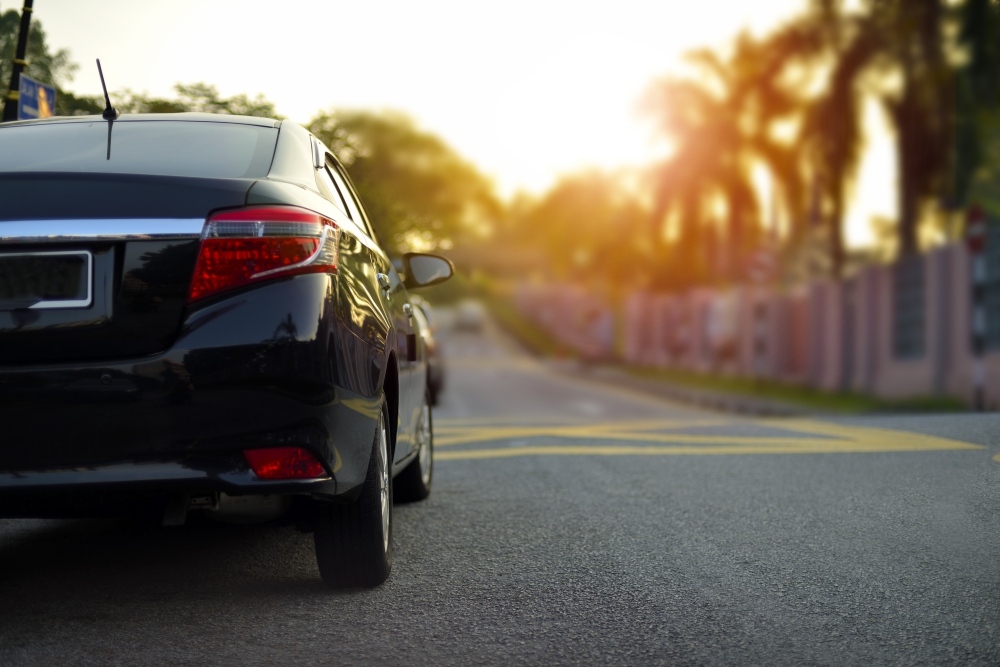Struck a Car on Side of the Road

In Florida, when a car has been left on the side of the road and another car strikes that disabled (or abandoned) vehicle, the person or business who left the disabled car can be responsible for that automobile crash on the side of the road. Here is why that is the case under Florida law.
“Florida Statutes Title XXIII. Motor Vehicles § 316.1945. Stopping, standing, or parking prohibited in specified places” states
1) Except when necessary to avoid conflict with other traffic, or in compliance with law or the directions of a police officer or official traffic control device, no person shall:
(a) Stop, stand, or park a vehicle:
11. On the roadway or shoulder of a limited access facility, except as provided by regulation of the Department of Transportation, or on the paved portion of a connecting ramp; except that a vehicle which is disabled or in a condition improper to be driven as a result of mechanical failure or crash may be parked on such shoulder for a period not to exceed 6 hours. This provision is not applicable to a person stopping a vehicle to render aid to an injured person or assistance to a disabled vehicle in obedience to the directions of a law enforcement officer or to a person stopping a vehicle in compliance with applicable traffic laws.
Therefore, if a person or a business leaves a vehicle parked on the side of the road or on the shoulder of the road and the disabled or abandoned vehicle is struck by another car, motorcycle, or truck, etc., the owner of that vehicle can be held responsible for the crash.

The law in Florida clearly provides for a disabled or abandoned vehicle to remain on the side of the road or shoulder of the road for no longer than six hours. The intent of this public safety law is clear. The shoulder or side of a road in Florida should not be danger zones for a vehicle that may partially stray off the paved road or when a vehicle is forced off the road onto the shoulder by another vehicle, pedestrian, or any other object in the paved roadway.
This is also a recognition under Florida law that the owner of the disabled or abandoned vehicle is held to have the ability—and the responsibility–to see that the abandoned or disabled vehicle is moved within that reasonable amount of time, which Florida law says is 6 hours.
What About Striking an Abandoned or Disabled Rental Car on the Side of the Road?
The law does not differentiate between a rental car or privately owned car under this statute. While it is may be that the rental car company could try to argue it had no notice of the abandoned or disabled rental car, that point would be up to a judge to decide. However, where it can be shown that the renter notified the rental car company of the disabled or abandoned vehicle, then it can support liability that the rental car company knew about the disabled or abandoned vehicle on the side of the road, but just did not timely do anything about it.
The same principles would apply if the vehicle left on the shoulder of the road was a company vehicle. Under Florida law the company still has only 6 hours to remove the disabled or abandoned vehicle. One other interesting point under Florida law, a person who is injured because they hit an abandoned or disabled vehicle on the side of the road can have this Florida Statute read as a jury instruction to the injury in any person injury suit arising out of such a car crash.
Does Comparative Fault Apply to These Car Crashes With Disabled or Abandoned Vehicles?
The Florida law that governs personal injury cases allows for the application of comparative fault to be applied. So when a person strikes an abandoned or disabled vehicle it is possible that a jury could say there was some comparative fault. Many factors would go into such an analysis by the jury, including: how close to the road was the abandoned vehicle, were the emergency flashers engaged on the disabled vehicle, what is the lighting at the scene, how long did the owner leave he vehicle on the shoulder or next to the roadway, did another vehicle force the driver off the road, etc. Though insurance adjusters love to talk about the comparative fault of claimants, no one can make such a decision except for a jury. So despite theorizing or conjecturing about comparative fault in these types of crashes, an adjuster cannot just make a pronouncement that there is 50/50 comparative fault—as they often try to suggest. Only a jury can assess comparative fault.

If you have struck a disabled or abandoned car on the side of the road, give us a call about your case. Some attorneys would be reluctant to take your case because of a claim that your vehicle partially (or even fully) left the roadway. Some attorneys will not take your case if the investigating officer gave you a ticket in this type of situation.
WE KNOW THAT IS NOT THE END OF THE STORY UNDER FLORIDA LAW. WE WILL FIGHT FOR YOU. WE ARE www.FightingForFamilies.com attorneys.
Call us today and let us fight for you.
Tampa Bay 727-399-2222. Statewide 800-253-2531.
